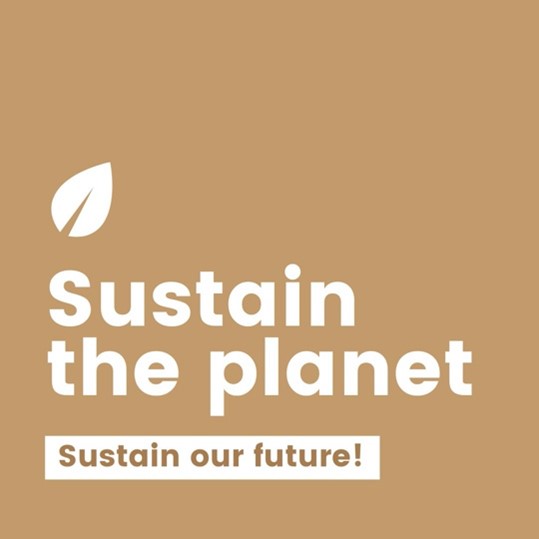What is EUDR and How Does It Affect the Chocolate Industry?

In the intricate and delicious world of chocolate manufacturing, every step from bean to bar involves numerous factors that impact quality, sustainability, and ethical practices. One of the latest developments affecting our industry is the European Union Deforestation Regulation (EUDR).
But what exactly is EUDR, and how does it influence the chocolate industry? Let's delve into this topic to understand its significance and implications.
Understanding EUDR
The European Union Deforestation Regulation (EUDR) is a ground-breaking legislative framework aimed at reducing deforestation and forest degradation linked to the production of specific commodities, including cocoa, which is a key ingredient in chocolate production.
Approved in 2023, EUDR is designed to ensure that products entering the EU market do not contribute to the deforestation of the world’s precious forests, which play a critical role in mitigating climate change and preserving biodiversity.
Key Provisions of EUDR
EUDR requires companies to:
1. Trace and Verify Supply Chains: Companies must provide clear evidence of the supply chain's traceability, ensuring that the cocoa used in their products is sourced from land which has not been subject to deforestation or forest degradation since 31st December 2020. In addition goods must be produced in accordance with the relevant legislation of the country of production including human rights, labour laws, land use and forest management.
2. Risk Assessment: Perform annual risk assessments to identify and mitigate any risks associated with deforestation in their supply chains.
4. Compliance Reporting / Due Diligence Statements: Regularly report their findings and the steps they are taking to comply with the EUDR requirements to the EU authorities.
5. Supply Chain Transparency: Increase transparency by making supply chain information available to the public and relevant stakeholders.
When do we need to be EUDR compliant?
The original dates for compliance were 30th December 2024 for large operators and traders doing business in the EU. For SME’s the obligations were a little later, until 30th June 2025. As of 2nd October 2024 the EU has confirmed that these dates will be delayed by one year.
How EUDR Affects the Chocolate Industry
The implementation of EUDR presents both challenges and opportunities for the chocolate industry. Here’s how:
1. Stricter Sourcing Standards
Chocolate manufacturers must now ensure that their cocoa is sourced from farms and regions that adhere to sustainable practices. This means working closely with suppliers and farmers to promote sustainable farming practices that prevent deforestation. While this can increase costs and require more rigorous monitoring, it also encourages the adoption of better agricultural practices. At Hames Chocolates we work with certified programs such as The Rainforest Alliance and Cocoa Horizons when purchasing our cocoa which adhere to strict sourcing standards.
2. Enhanced Traceability
EUDR mandates that chocolate manufacturers must have a robust system for tracing the origin of their cocoa. This traceability is essential not just for compliance, but also for building consumer trust. Knowing the journey of the cocoa bean from farm to bar reassures consumers that the products they enjoy are ethically and sustainably sourced.
3. Increased Costs and Compliance Burden
Implementing EUDR compliance measures can be costly. Chocolate manufacturers might face increased operational expenses related to supply chain audits, certification processes, and risk assessments. Additionally, small and medium-sized enterprises (SMEs) may find these requirements particularly challenging due to limited resources.
4. Market Opportunities
On the positive side, EUDR opens up new market opportunities. Consumers today are more conscious of the environmental and social impact of their purchases. Chocolate brands that can demonstrate compliance with EUDR and a commitment to sustainability are likely to appeal to this growing segment of eco-conscious consumers, potentially increasing their market share.
5. Collaborative Efforts
The regulation encourages collaboration among industry players, governments, and NGOs to promote sustainable cocoa farming. By working together, stakeholders can share best practices, support farmers in adopting sustainable methods, and develop innovative solutions to combat deforestation.
Embracing EUDR for a Sustainable Future
For the chocolate industry, EUDR represents a significant shift towards sustainability and ethical responsibility. As a chocolate manufacturer, we are committed to meeting these new regulations and contributing to the global effort to protect our forests. By embracing EUDR, we can ensure that our beloved chocolate treats do not come at the cost of our planet’s health.
EUDR is more than just a regulatory challenge; it is an opportunity for the chocolate industry to lead the way in sustainability. By adopting the principles of EUDR, we will create a more transparent, responsible, and sustainable chocolate supply chain, ensuring that the indulgence of chocolate lovers worldwide is both guilt-free and planet-friendly.

Last update 2nd October 2024
#eudr #chocolatemanufacturing #sustainablecocoa
